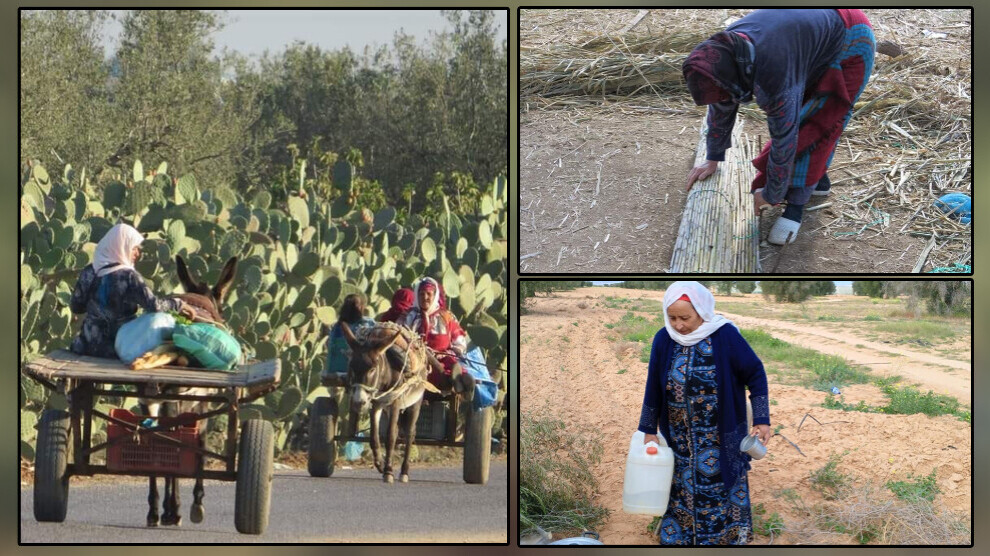Rural women in Tunisia use traditional practices to protect environment
Women living in rural areas in the northwest and south of Tunisia use traditional practices in agriculture to protect the environment.

IKHLAS HAMROUNI
Tunisia-Throughout history, women have made great efforts to protect the environment by using traditional practices in agriculture. Women living in rural areas in the northwest and south of Tunisia play an important role in the management of natural resources, including soil, water, forests and energy, away from all the complexities of cities and cutting-edge technologies.
Jawida Mahmoudi, an environmental activist and trainer at the Center Agricultural Training of Sidi Bouzid, has sufficient experience and knowledge on sustainable development and climate change since she took many entrepreneurship and agriculture courses on irrigation and water resources. She thinks that the increase in temperature and ongoing droughts caused by climate change have increased women's responsibilities.
‘Women have a strong bond with nature’
“The living conditions of rural and urban women are different. The rural women are mostly deprived of their rights to education and work. They face barriers in achieving their goals,” said Jawida Mahmoudi. “Although they do not have sufficient knowledge of the importance of preserving the environment and sustainable development, they have a strong bond with nature. They achieve food security through agricultural activities such as planting vegetables and trees. They live in harmony with nature through their simple daily activities.”
‘They protect the environment’
Rural women grow grains, vegetables, and fruits without using pesticides or artificial fertilizers, Jawida Mahmoudi stressed. “Thus, they protect the environment and improve soil fertility for the next generations. They do not use any technological tools or vehicles in agriculture and reduce carbon dioxide. They reduce the need for natural gas and oil by using agricultural waste such as firewood and animal feces for cooking and heating. Through traditional practices, they play a leading role in reducing environmental pollution and preserving the beauty of their surroundings.”
‘To leave a clean environment for future generations’
Mubarak Ani, one woman living in one of the rural areas of Tunisia’s Sidi Bouzid Governorate, thinks the role of women in protecting the environment is important. “A few days later, the olive harvest season will start. After harvesting olives, we will cut the tree branches and dry them in the sun. We use them for cooking and heating in winter. Since we raise livestock, we use animal dung as a natural fertilizer. We make clothes from their wool. We depend on nature so we do not pollute the environment. We protect the environment to leave a clean environment for future generations.”
